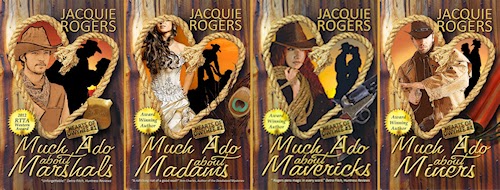The Trials and Tribulations of Creating a Masterpiece
or
Getting Through Revisions Without Slashing Your Wrists
The world of publishing is huge and dinky all at the same time. Authors know a lot of people — both online associations and in-person. Lots of us are friends because, well, we don’t question each other if, at dinner, someone asks about poisoning a rich relative or the proper way to garrote a man. It’s just normal conversation. (Note: we do get occasional questioning looks from restaurant patrons and waiters.)
We critique with each other — delving into character, continuity, and plot holes. We go back to our writing hidey holes and fix everything, then, because we’re apparently masochistic, we let our critique partners read it again. You have to have a tough skin to get through this process.
After you’ve satisfied your critique partners and polished the story as best you can, off it goes to the editor.
Then you hold your breath.
I don’t have anything in the editing process right now but one of my critique partners does. She just got back her edits and a revision letter, and we’re trying to sort it all out. Her job is to forge on and make this story the best it can be. My job is to keep her from slitting her wrists in the process.
One of the hardest parts of writing a story is to put your vision of the scene and your notion of the character on the page. That sounds simple enough and it is in theory — in practice, though, it’s hard to accomplish.
The author and the critique partners have discussed the characters, the situation, and the setting. While these characters all come from the author’s imagination, the critiquers are often involved in every stage of development. When they read a scene, they already know what’s supposed to be there, which means it’s very easy to understand a character’s motivation even if it’s not on the page.
However, the editor hasn’t been involved at all, and is a fresh pair of eyes. She only sees what’s written, and sometimes gets the complete wrong impression of a character. So the editor writes: “Is your heroine really this naïve?” And you mutter, “Why on earth would she think that?” The editor thinks that because the heroine’s motivation or circumstance is not on the page! Simple enough.
Usually simple enough to fix, too, if the author can figure out how.
The hardest part of it all is coming to terms that her masterpiece is, in fact, not. It’s very much akin to having someone tell you your new baby is ugly. Must of us write from the heart and our stories are part of us. We don’t want the evil editor to tell us our babies are ugly. But to deliver the best book we can, we must hear the truth and embrace it.
The irony is, we love our editors even if we’d like to fit them with concrete boots. That sounds crazy, but every author I know would go to the end of the earth, including pulverizing our own egos, to make our stories come alive. You see, we really get a kick out of creating these characters and worlds, and we want our readers to enjoy them as much as we do.
Good editors love books. There has to be a special place in Heaven for editors who know that their comments will cause untold misery. Still, they write the revision letter, shut their eyes, and click Send in spite of it, because they really do want to help. The easy way out would be for an editor to fix a few things so the author knows the manuscript was read, collect the fee, and be done with it. But no. A good editor puts the story first, before the author’s ego. Gulp.
Once the revisions are done and accepted, we all go out and party together. Yep, we all survived to write another day.







What a terrific post. And I totally agree with you. I have a great editor and deeplyu appreciate her.
ReplyDeleteI appreciate my editor, too, but far more before and after the actual edit. LOL
DeleteGreat blog! You and your editor are doing a great job together! Keep up the good work!
ReplyDeleteThanks, Karren. <3 I'm glad you stopped by.
DeleteYou have captured the writer's life perfectly... especially the parts about murder.
ReplyDeleteYou have us down to a T, Jacquie. I appreciate my critique partners and editor.
ReplyDeleteJacquie, I am in that purgatory right now! Stage 1: Those words were prefect, dammit. Stage 2: Okay, maybe I need another line there. Stage 3: Okay, maybe it would be better if...
ReplyDeleteSuper post.
Jacquie, great post. I want to share the link to your Thursday3Some Spotlight on Much Ado About Miners: http://slingwords.blogspot.com/2014/04/thursday3some-much-ado-about-miners.html so your readers can learn more about that book.
ReplyDelete